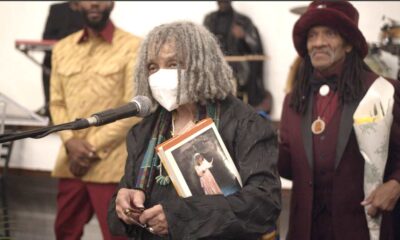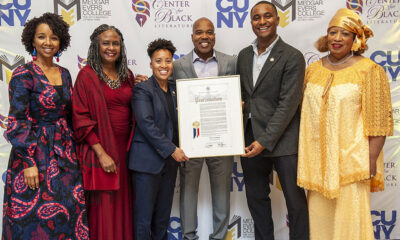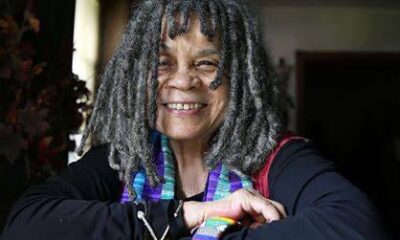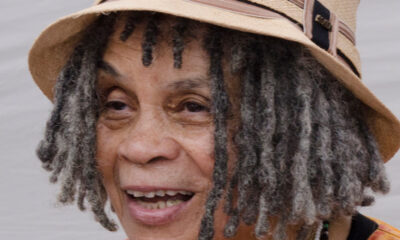Book Review
Hip Hop @Fifty Where Do We Go From Here?
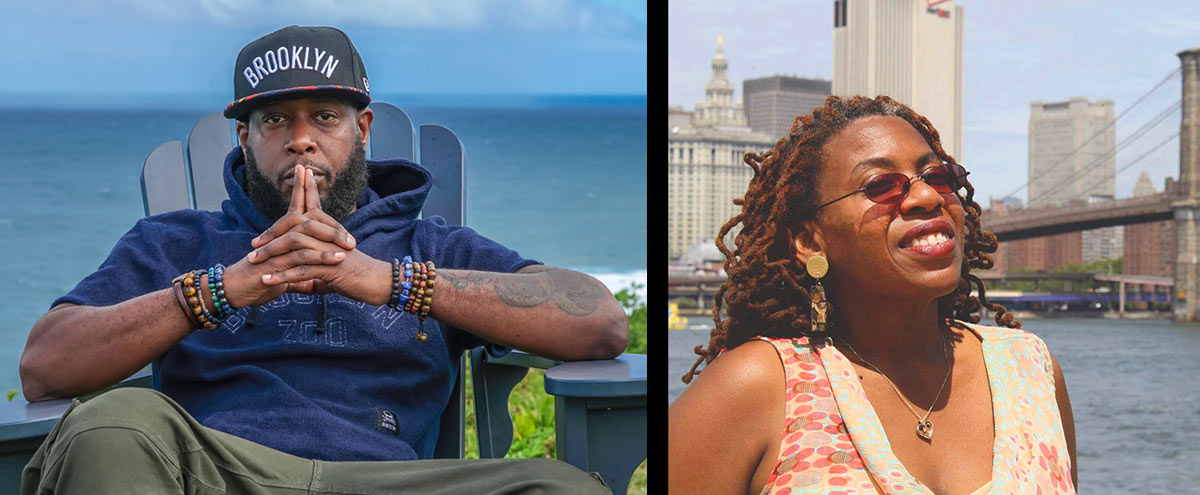
By Brenda Greene
African Voices, founded in 1992 by Carolyn Butts, is an organization dedicated to preserving art, literature, and film. This special edition of the print magazine, African Voices, Hip Hop @Fifty, Where Do We Go From Here, (Nov/Dec 2023 Issue, www.blurb.com ) is in alignment with the plethora of books, exhibits, performances, essays, and visual projects in celebration of 50 years of Hip Hop. What distinguishes this representation of voices on hip hop in African Voices, guest-edited by the prolific writer, activist, and cultural worker Kevin Powell, is the intergenerational and diverse range of artists, poets, scholars, and activists from the arts, entertainment, education, and politics who define hip hop, provide its legacy, analyze its impact and future, and expand its narrative.
Mayor Ras Baraka, in “Nothing But Sweat Inside My Head.” provides a context for when hip hop began. “WE several hundred years from slave revolts and Blk codes still searching . . . Between jazz riffs and beat boxes. We painted against the backdrop of broken buildings and dirty mattresses. Danced our way through poverty with linoleum and old cardboard.” Abiodun Oyewole, a founding member of The Last Poets, calls hip hop “another genius creation, a rolls royce of a literary vehicle to express ourselves, entertain ourselves, teach ourselves, what we need to know.”
Media personality Jill Tracey meditates on how “Fifty years of hip hop has allowed us to tell new stories with cadence and glory formerly reserved only for men.” Professor of African American Studies Dr. Siobhan Brooks who describes herself as a lover of hip hop and not a hip hop head, underscores why, in this current climate of attacks on critical race theory and gender studies, we need hip-hop-based education more than ever as an educational tool for students to unpack racism, sexism, and classism.
Poets Nikki Giovanni and Sonia Sanchez reflect on the legacy of 2PAC Shakur. Nikki reminds us that “2PAC told the truth, there were those who never wanted to be angry at the conditions but angry at the messenger who report . . . your house is in disorder.” Sonia Sanchez writes of Tupac: “we anoint your life in this absence; we anoint our tongues with your magic, your genius.”
The presence of hip hop as a tool for fighting for social justice and in our political spaces is expressed by poet, playwright, and cultural critic Charlie R. Braxton, in “A Poetic Flow for Big Floyd.” Braxton remembers the agonizing cry of George Floyd: “I can’t breathe, I can’t breathe, I can’t breathe, I can’t . . . . the agonizing pain in his voice rang all the way up to high heaven, his last cry, an ancestral call for his mother as the last essence of his soul slipped away.” And Congressman Hakim Jeffries describes the initial pushback he received when he decided to go to the House Floor to deliver a tribute to the Notorious B.I.G. to commemorate the 20th Anniversary of his tragic death. He responded by checking the Congressional record and affirmed his suspicion that prominent artists like Elvis Presley, Frank Sinatra, and Bruce Springsteen had been acknowledged by members of the House in the past.
Karen Gabay and Gil Griffin draw attention to the global impact of hip hop. Gabay, a radio podcast host, notes that hip hop is firmly rooted in Jamaica and the wider context of Caribbean culture from where she resides in the United Kingdom. Hip hop journalist Griffin introduces readers to the group Sudden Rush that has inspired a growing group of Hawaiian hip hop artists to embrace all aspects of their identity and fight for Hawaiian sovereignty.
April R. Silver, activist, writer, and founder of AKILA Worksongs, reminds us that hip hop cannot be discussed without examining its impact in the corporate world as well as its commercialization. In “What is Hip? More Commentary on the Never-Ending Debate of “Culture vs. Commerce in Hip Hop,” Silver acknowledges that: “There is no question that the marriages of commerce, community, and the academy have produced positive works. Artists and their assemblies have been feeding their families for decades, but “at what cost?” Actor, musician, and poet Malcolm-Jamal Warner analyzes the history, nature, purpose, and elements of hip hop in his poem “Golden Anniversary.” Warner points a way to the future: “We have raised you, like a village-less child. It is time we pitch in, dust you off, and help you grow.” “It is time we take you back.”
Our artists have always been the truth tellers in our culture. African Voices’ Hip Hop @Fifty, Where Do We Go From Here? adds to the ever-growing canon of hip hop culture and poses questions for the future of hip hop. Talib Kweli, hip hop artist, activist, and writer in reflecting on this charge submits that: “In 50 years hip hop has gone from solely being the voice of the marginalized youth to being the voice of many generations. We are in unchartered waters now. What happens now will be defined by those who don’t just consume hip hop but by those who actively participate in it.”
Dr. Brenda M. Greene is Professor of English and Founder and Executive Director of the Center for Black Literature at Medgar Evers College, CUNY. For more information, visit https://www.drbrendamgreene.com




